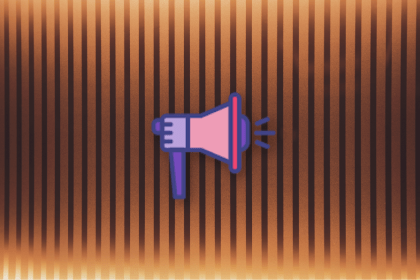At Figma’s Config23 conference, Brian Chesky led a talk on “Leading through uncertainty” where he announced that Airbnb has ended its product management function.

Chesky’s announcement sent ripples through product and design communities and a lot of folks were left wondering about the future of product management. This post aims to shed some light on Chesky’s statement, while presenting different perspectives on the role of product management in the tech industry.
“The designers are equal to the product managers, actually we got rid of the classic product management function. Apple didn’t have it either.”
-Brian Chesky, Figma Config23
Brian Chesky’s statement sent tech workers into a frenzy on Twitter. Parts of the design heavy audience at the conference even began to cheer. I was a bit shocked, so I couldn’t help but dig in to find out what really was said and what other product managers like myself were saying about the statement.
Is Airbnb actually getting rid of product management? Also, did Apple never have product managers and/or get rid of their product management function as well?
Figma has a really strong following in the product and design worlds and Chesky’s statement was picked up by a number of individuals via Twitter and product communities. One designer’s tweet entitled “the death of product management” was viewed six million times!
He noted that a number of individuals who attended the conference began to cheer with enthusiasm. Another person tweeted out that product managers should even “rethink their career choices given the Airbnb talk.” In several product communities product managers were a bit shocked and dismayed that an influential tech CEO would say such a thing.
The statement caused quite a stir, so I went back to listen to the talk and read what the community had to say about the statement. Notable product influencers and thought leaders entered the fray with their own takes on the statement.
One leading product thought leader noted that they think about PM as a “white-space” role, a role that requires filling in a lot of gaps depending on the company stage, size, and culture.
Another person wrote that during their time at Airbnb the product management function had been renamed to product marketing to “emphasize the importance of the marketing/launch elements of product building.” After a lot of back and forth, accuracy prevailed over the misleading tweets and it was clarified that the move to get rid of product management wasn’t what happened at all.
As it turns out, product management is alive and well at Airbnb, it just isn’t called product management any longer. Airbnb merged product management and product marketing into a single functional unit. Product managers are expected to publicly stand behind their work.
Senior management felt that product managers at Airbnb should have an expanded role that takes on PMM responsibilities as well. The new role sounds like it will be similar to brand manager roles that are prevalent in the CPG industry, where brand managers are responsible for both development and marketing.
Chesky responded to the original “death of product management” tweet highlighting that he “should have been more clear” and that the PM role wasn’t going away, but the traditional function was. The PM role at Airbnb is shifting to a more “Apple-style product marketing function.”
Chesky’s Apple statement was a bit controversial as well in that it gave the impression that product management doesn’t exist at Apple. One Apple PM tweeted out that Apple actually does have PMs and to “not let the secret out.” Other folks chimed in through product communities confirming that their friends were PMs at Apple and that the role does exist there.
If you watch Chesky’s talk, he’s clearly highlighting a problem in the industry when a company has a lot of products, roadmaps, and decision makers. Airbnb grew so fast that it could no longer function the way its management team had intended. Additionally, the design-led culture of Airbnb had been eroding over time.
Each company has a unique culture that is largely influenced by its founders and initial hires. In the product community, many describe Airbnb’s culture as very design-oriented, like Apple. This may be why Chesky noted Apple as their benchmark organization when it came to the role of product management in the company.
Apple and Airbnb are design-led companies, while other companies are more engineering-led, like Google, or where I work at Intel. In my experience, product managers need to be flexible and should never deploy a one-size-fits-all approach to problem solving. As a product manager moves up, communication becomes a much larger part of the job and the product manager will need to speak the language of the company to influence decisions.
For instance, an engineering-led company may potentially view a design-led proposal as lacking the hard data needed to make a decision. On the other hand, an engineering-led proposal at a design-led firm may be seen as lacking customer empathy.
Another factor in product management’s role at a company is the stage of the company. In the early stages, product managers craft the product’s value proposition and try to understand what the growth levers will be. In very early stages, the CEO is likely to be the head of product and only have a single product manager under her.
In later stage companies, the product management function may have grown to upwards of several hundred product managers. Many of them will have successful products sitting in front of them so they are no longer crafting, but instead looking for expansion opportunities through new features, adjacent users, or new use cases.
The product management function isn’t going away, but it’s going to morph into something new. Statements like Chesky’s will have an impact on how the role is viewed in the future. However, hasn’t that always been the case?
As you look across companies, product management rarely looks the same. The expectations, the organization topology, and the level of influence are different. Early in my career, I may have thought of that as a bad thing given my engineering and manufacturing background.
Now that I’m in the middle of my career, I know it’s a good thing that product management is so adaptable.
After listening to Chesky’s talk, it sounded like Airbnb had tried the business unit structure where the main segments of the company were business units who had general managers. This structure is prevalent at many companies and the best example is at Amazon, where general managers have the final say in decisions for their division and are running multiple functions (including product management).
This contrasts with the functional approach where each function (design, engineering, product) has a chief officer running its function and the collective executive committee makes decisions at the corporate level. The business unit structure wasn’t working for Airbnb so it went back to a functional structure. It also sounded like Airbnb was also becoming somewhat insular and folks either weren’t being given the opportunities to promote their work externally or the new processes didn’t emphasize standing behind one’s work.
I think Chesky brings up a very good point. An individual will always take more time and effort when they are expected to promote their work externally simply for the fact that they will be seen by the public. If an organization doesn’t promote the individual along with the company, the risk is that the work becomes a product of inward-focused committees.
This doesn’t mean that committees are all bad, but having too many of them can result in a lack of accountability to the customer. If something goes wrong or if a customer has an issue, are they going to send an email to a committee? Is the committee going to resolve the issue the same way an accountable individual would?
In closing, my firm belief is that product management will continue to evolve and product managers need to be flexible in how they view the role across companies. Additionally, companies will have different needs over time and they will ask their product managers to take on a variety of tasks. The challenge for individuals in these situations is that they may potentially be viewed as “just another generalist product manager” versus a unique and valuable specialist product manager.
It’s important for product managers to specialize and stay specialized in the event of a layoff or a company change. Staying specialized generally offers the best opportunities, personally and financially. Some may say that specializing will reduce your opportunities in the future, but I don’t believe that is true.
After 18 years of working in tech, the trend I have witnessed is that the more unique you are, the more valuable you are. This goes for both products and people. You should treat your career like a product and a product built for everyone ends up being built for no one.
Featured image source: IconScout
LogRocket identifies friction points in the user experience so you can make informed decisions about product and design changes that must happen to hit your goals.
With LogRocket, you can understand the scope of the issues affecting your product and prioritize the changes that need to be made. LogRocket simplifies workflows by allowing Engineering, Product, UX, and Design teams to work from the same data as you, eliminating any confusion about what needs to be done.
Get your teams on the same page — try LogRocket today.

A strategy map is a tool that illustrates an organization’s strategic objectives and the relationship between them using a visual diagram.

Insight management is a systematic and holistic process of capturing, processing, sharing, and storing insights within the organization.

While agile is about iterative development, DevOps ensures smooth deployment and reliable software updates.

Aashir Shroff discusses how to avoid building features or products that replicate what’s already in the market but, instead, truly stand out.
2 Replies to "Is product management going away? Why Airbnb got rid of its PMs"
If AirBNB is so “design focused”, how come they still don’t allow users to do basic user-centric things like sort by price?
Theh seem to be “revenue focused” to me. Every time I have to use AirBNB I find myself cursing at how painful the app makes the most simple of tasks.
Hi Bob – Airbnb has been receiving a lot of criticism over the last few years about being overly focused on revenue, you are 100% correct. If you listen to Chesky’s talk at Config (link in the article), he talks about how the company grew from being design-focused into a corporate juggernaut pre-ipo which caused the kinds of problems you are highlighting. Historically, Airbnb had a much smoother interface than its main rival VRBO and as a result, was able to take the lion’s share of the market.